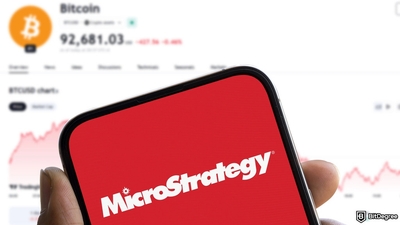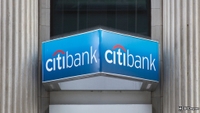Free Airdrop Season 7 is LIVE! Answer fun questions or do simple tasks to earn rewards from the $30K BitDegree prize pool. Participate Now ! 🔥
Fidelity Joins Race for Spot Ethereum ETF Approval Following BlackRock's Lead
Key Takeaways
- Fidelity files with the SEC for an Ethereum ETF, following BlackRock’s similar filing.
- The proposed Fidelity Ethereum Fund aims to provide US investors with regulated, exchange-traded exposure to Ethereum.
- Fidelity's move marks the seventh Ether ETF application in the US, reflecting growing mainstream interest in cryptocurrency investments.
Fidelity, a global asset management giant, has stepped into the competitive arena of cryptocurrency exchange-traded funds (ETFs) by seeking regulatory approval for spot Ethereum (ETH) ETF.
This move follows BlackRock's similar initiative and signals a growing interest in cryptocurrency investment products among major asset managers.

Did you know?
Subscribe - We publish new crypto explainer videos every week!
What is a Crypto Mining Rig? Is it Worth it? (EASILY Explained)


On November 17th, Fidelity filed with the US Securities and Exchange Commission (SEC) to list the Fidelity Ethereum Fund on the Cboe BZX Exchange.
The proposed fund aims to offer US investors a regulated and exchange-traded vehicle to gain exposure to Ethereum, addressing the lack of low-risk investment options in the crypto market for US citizens. In particular, the filing read:
According to the Registration Statement, each Share will represent a fractional undivided beneficial interest in the Trust's net assets. The Trust's assets will consist of ETH held by the Custodian on behalf of the Trust.
Fidelity's filing emphasized the advantages of such a fund, noting the counter-party, legal, and technical risks associated with the current methods of digital asset investment. The firm also pointed out that European investors already have access to regulated products on established exchanges, allowing them to invest in a wide range of cryptocurrencies.
The announcement comes just a day after BlackRock, another asset management behemoth, filed with the SEC for a spot Ether ETF — the iShares Ethereum Trust.
BlackRock had previously registered the iShares Ethereum Trust with Delaware's Division of Corporations, and about six months earlier, it had applied for a spot Bitcoin ETF.
Fidelity's application makes it the seventh firm to join the race for an Ether ETF in the United States, following other prominent firms like VanEck, 21Shares and ARK Invest, Hashdex, Grayscale, and Invesco Galaxy.
The growing interest from leading financial institutions underscores the increasing mainstream acceptance and demand for cryptocurrency-based investment products.























